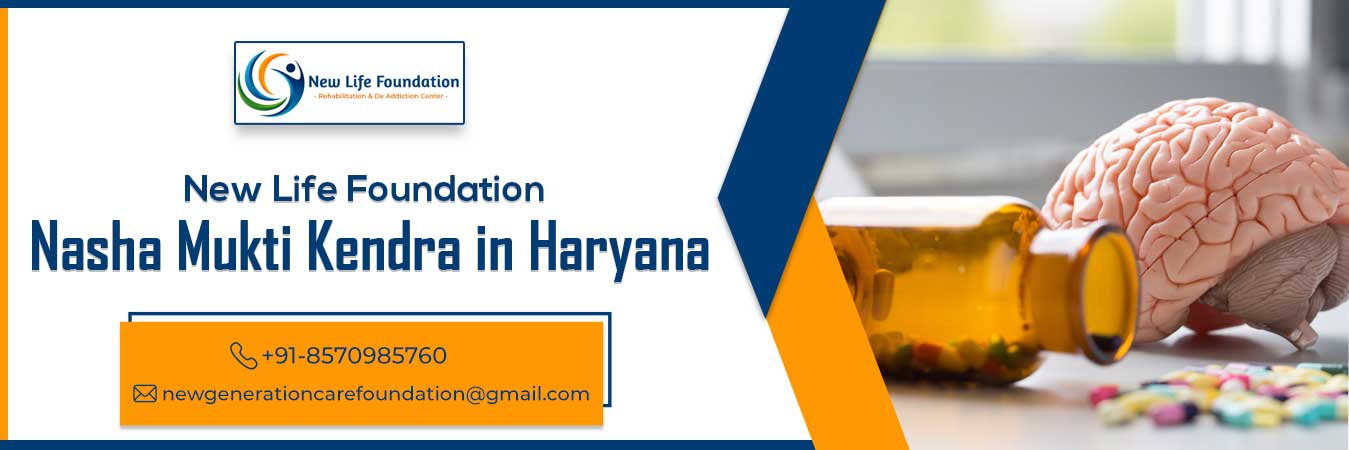Drug treatment or Nasha Mukti Kendra in Ambala programs refer to the psychological and medical treatment of a person dependent on psychoactive substances such as stimulants, prescription drugs, or alcohol. Rehabilitation aims to enable the affected person to stop abusing the substance, thus avoiding the harmful effects: that is, the financial, social, psychological, physical and even impacts. both legal.
Psychological dependence
Addiction centers help teach addicts how to live in a drug-free environment. In these programs, patients are discouraged from associating with people with substances they wish to stop using. The program aims to guide patients to examine their habits and change them for the better. Legal drugs such as alcohol require total abstinence rather than moderation, which is often unsustainable for people with a history of alcohol abuse.
Types of treatment available
Drug recovery is accessed through various programs including; access to local support groups, addiction counseling, medical care, inpatient treatment, long-term care providers, mental health, rehabilitation homes, and chiropractic. Some rehab centers have specific programs based on the patient’s age and gender. Nasha Mukti Kendra in Amritsar not only help with the patient’s addiction problem but also help with any other problems in the patient. Medical detox alone is not enough to treat addiction. Different organizations use different styles for drug addiction rehabilitation, with some recommending detoxification for patients first, then medical therapy, behavioral therapy, and then prevention. Relapse.
Detoxification includes the following types of behavioral therapy:-
Cognitive-behavioral therapy: helps patients recognize, avoid, and tolerate situations that may lead them back into their addictive habits. Multidimensional family therapy: specifically designed to help addicts recover through the support of their families. Motivational Interviewing: Help motivate the patient to stop using drugs and start treatment.
Incentives: it uses positive factors to encourage patients to abstain from substances. Counseling: Most traditional drug treatment programs are based on counseling. Through counseling, addicts can learn about the behaviors and problems accompanying their moods. This is done on an individual or group level and may include crisis counseling and daily/weekly counseling support. This counseling process helps instill good behaviors and helps the patient cope with any situation. Counseling is the outcome of an intervention that involves seeking the professional help of stakeholders to provide the patient with the necessary treatment.
Inpatient treatment: This Rehabilitation Centre in Shimla program involves staying in a rehab center while receiving substance abuse treatment during the day. This treatment program usually lasts for a period of 30 to 90 days. Sober House Living: Like inpatient treatment, this treatment includes intensive care while the patient remains among other recovering drug addicts living in a supportive environment. This patient treatment program is most appropriate in cases where the patient has nowhere to go or in situations where returning home means returning to old addiction problems.
Brief Intervention: This detox program is more suitable for people at risk of addiction or at risk of addiction, but it is not helpful for people who are already addicted. Treatment under this program includes visiting a medical facility to talk about the negative effects of drug abuse and ways to reduce drug use. Partial Hospitalization: This treatment program is best suited for patients who need ongoing medical monitoring but are less affected by a substance abuse problem. This treatment program is offered 3 to 5 days a week and 4 to 6 hours a day. Location of addiction treatment centers
When researching addiction treatment programs near you, it’s important to talk to your doctor for helpful advice and recommendations on the right program. Nasha Mukti Kendra in Punjab can also help you find a good rehabilitation center. Local mental health clinics, hospitals, and community health centers are also helpful sources of information about the different addiction programs available based on the treatment that is best for your condition. addiction and their current budget.





